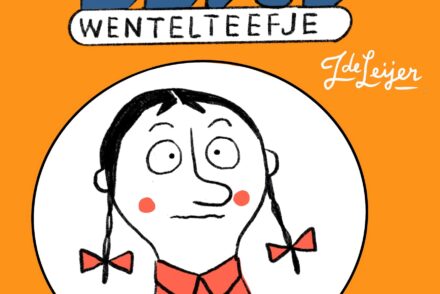Apologizing for Dutch slavery past: ‘We, as the Dutch, are equally guilty’
Should the Netherlands apologize for its slavery past? According to the majority of Dutch people, this is not a good idea. For example, it would not be possible to apologize for something that earlier generations did and it would lead to huge damage claims from victims. However, the legitimacy of these and other counter-arguments is open to debate.

To this day, the Dutch government has never dared to apologize for our slavery past. “Deep regret and remorse” were expressed, but no formal apologies were issued. The outgoing Rutte government has decided not to apologize now (Dutch only), partly because it fears a further polarization of the racism debate.
Whether the Dutch themselves believe that apologies should be made was investigated last month in a poll (Dutch only) conducted by I&O Research on behalf of Trouw. It showed that the majority (55 percent) of those questioned find apologies for the history of slavery unnecessary.
The main reason given is that there would be no end to it if the Netherlands apologizes; how far should we go back? Should we then also apologize for child labor, for example?
“Dutch are quick to take offence”
Tilburg University professor of business ethics, Wim Dubbink, does not think that is a strange thought at all. “My mother worked as a child laborer when she was fifteen years old. She suffered from that and would still suffer from that—just like many other victims—if she were still alive. For that, in my opinion, she should have received apologies.”
It is precisely by broadening the discussion that Dubbink expects people to begin to see that slavery excuses are in order. “By framing the debate in terms of slavery, Dutch people are quick to take offence.” According to him, it shows extraordinary hypocrisy. “We, as the Dutch, are equally guilty. After World War II, the Netherlands was at the forefront of demanding apologies from the Germans.”
Liability claims
One of the arguments put forward by the Dutch for not apologizing is that it would have major legal consequences. The fear is that by making an apology, the Netherlands will open the door for organizations, countries, or individuals, to go to court and file liability claims.
Is this fear well founded? Not according to Lianne Wijntjens, who earned her PhD at Tilburg University last year on apologizing in civil and medical disciplinary proceedings. “Quite apart from factors such as the statute of limitations and the tracing of damages, there is no chance that apologizing will lead to liability. Only under very rare circumstances do apologies count as an admission of civil liability.”

This is because the determination of liability as a legal qualification is entirely reserved for the court. It has the final say when the intention of the person who declares something differs from the way the recipient understood the declaration.
For example, when the victim perceives the apologies as an acknowledgement of liability while that was not the provider’s intention.
In that case, the court decides, based on all the facts and circumstances, whether the victim had a legitimate expectation that the apology made was intended as an admission of liability. “This is almost never the case,” says Wijntjens, “because excuses made by the people responsible for the damage serve much more as a moral judgment about their own conduct than as an acceptance of liability.”
Not only are the legal risks of apologies negligible, but Wijntjens emphasizes that apologies have positive effects. “Apologies contribute to the recovery of the aggrieved and make them more forgiving. As a result, expensive proceedings are less likely to be initiated, which benefits both parties.”
Should a case arise, then offering an apology has positive effects here as well. The fact is that making excuses is regularly weighed by the court in favor of the person offering the apologies when determining the amount of the compensation. This can therefore be lower.
Collective responsibility
Now that the legal concerns surrounding slavery apologies can be put aside, it is more fruitful to bring the slavery discussion back to the ethical playing field. The most common question in this regard is whether you, as a generation, can apologize for something that previous generations did. In other words, are we, as the Dutch alive today, responsible for what the Dutch did at that time?
It goes without saying that Dutch people alive today cannot be held personally responsible for what happened at the time. We were not there and therefore were unable to influence slavery policy. We have no guilt. However, this also applies to many citizens of that time. The Netherlands was an autocratically governed country then, which meant that the majority of Dutch people had no say in the matter, according to Rutte (Dutch only).
“We should not focus on individual apologies from citizens”
Yet it feels counterintuitive to, therefore, absolve all these people of responsibility, says Dubbink. “There was a strategy at the time without a strategist, but that doesn’t mean one doesn’t have to account for that strategy. Without having made or created the system, you did become part of it and took advantage of a situation where others were being exploited.”
If we continue this line of thinking, a possible (but unlikely) ignorance among the people and a lack of decisiveness to end transatlantic slavery are less relevant. The decisive factor is that the Republic of the time gained an economic advantage over other nations and thus benefited from the slave trade.

This wealth gap has not been closed to this day. The Netherlands is still one of the stronger economies in the world. It is too easy to conclude that this is entirely due to the Dutch history of slavery; no single cause can explains this.
But that years after the fact, the Netherlands is still reaping the benefits of its past slavery policy is plausible.
In a sense, therefore, we are collectively responsible for what happened at the time—precisely because we benefit from it as a country, as a whole.
“To do justice to this collective responsibility, we must not focus on individual apologies from citizens,” Dubbink says. “It is the Dutch state as representative of that collectivity that must step in here and apologize for its slavery past.”
Contemporary racism
If the Dutch government decides to apologize, to whom? For the government, an important distinction from the apology made for the violence in Indonesia and for its role during the Holocaust lies here. While those affected by these events are still around, direct victims of the slave trade are no longer alive.
“As much as we would like to, the history of slavery is not something that the Netherlands can just shake off,” says Dubbink. “Despite the fact that there are no direct victims anymore, its effects are still clearly visible today. Just look at today’s racism against black people. That’s still a widespread problem for which slavery is partly to blame.”
For this group in particular, apologies can be meaningful. They serve as confirmation that the Dutch government will never again revert to its old behavior. Dubbink: “Taking responsibility is broader than just accepting blame and liability for something you did in the past. It also carries a promise to act differently in the future. Apologies express that intention.”






